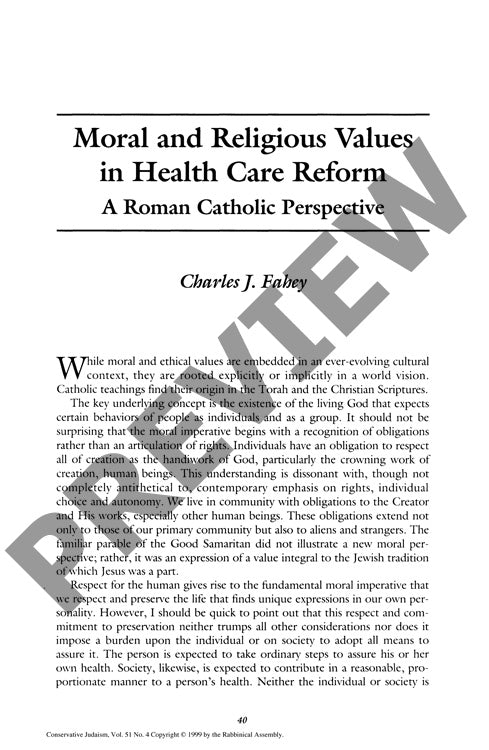Moral and Religious Values in Health Car
Couldn't load pickup availability
Catholic moral theology has profoundly shaped American healthcare delivery, with Catholic institutions now accounting for 16% of U.S. community hospital admissions and $40.7 billion in annual revenues. Drawing from Roman Catholic perspectives, this analysis explores how religious and moral values influence healthcare reform through examination of papal encyclicals, episcopal statements, and institutional practices. The research traces Catholic healthcare involvement from medieval monastic infirmaries to modern hospital systems, revealing a consistent theological framework that prioritizes community obligation over individual rights, emphasizes subsidiarity in healthcare delivery, and establishes healthcare access as a fundamental human right rooted in human dignity. Catholic institutions have operationalized these values through extensive healthcare networks and policy advocacy, particularly via the Catholic Health Association. Analysis demonstrates three core principles driving Catholic healthcare philosophy: conceptualizing healthcare as service rather than commodity, promoting responsible stewardship of resources, and advancing human dignity and common good. These findings illuminate how religious values can meaningfully inform contemporary healthcare policy debates while providing a structured approach to faith-based healthcare reform that emphasizes social justice and universal access.

More Information
-
Physical Description
-
Publication Information
Published 1999
ISBN
-
Publication Credits
Charles Fahey

